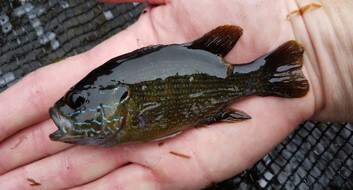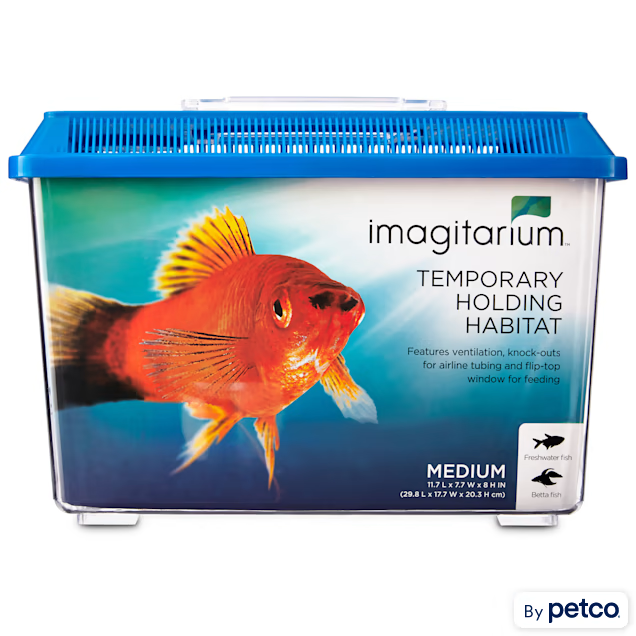To sell aquarium fish, you may need a license depending on your location. For example, in Texas, you may need an Exotic Species Aquaculture Permit from the Texas Parks & Wildlife Department.
It is important to check with your local authority or fishery department to determine the specific license requirements for selling aquarium fish in your area.
Introduction To Selling Aquarium Fish
Selling aquarium fish can be an exciting and potentially lucrative venture for those passionate about aquatic life. Whether you are a hobbyist looking to turn your love for fishkeeping into a business or an entrepreneur seeking to enter the thriving aquarium trade, understanding the licensing requirements is crucial.
The Allure Of The Aquarium Trade
The aquarium trade is a dynamic industry driven by the growing popularity of aquascaping and the increasing demand for diverse and exotic fish species. Enthusiasts are drawn to the vibrant colors and unique behaviors of aquarium fish, creating a steady market for both common and rare species.
Basic Considerations Before Starting
- Research local regulations and licensing requirements for selling aquarium fish.
- Understand the legal obligations and responsibilities associated with fish sales.
- Ensure compliance with environmental and conservation regulations for the trade of exotic or endangered species.
- Establish ethical sourcing practices to promote sustainable and responsible fishkeeping.

Credit: www.aqueon.com
Identifying Your Business Model
When it comes to selling aquarium fish, it is important to identify the right business model that suits your goals and resources. Here, we will explore the options for selling aquarium fish and the benefits of each model.
Options For Selling Aquarium Fish
There are several options available for selling aquarium fish, depending on your preferences and business goals:
- Local Fish Store: Working with a local fish store is a popular choice for many aquarium fish sellers. This model involves building a solid, long-term relationship with a specific store. You can approach the store with a sample bag of fish along with a cover letter containing your contact information and a pricing list labeled by species name.
- Online Store: Setting up an online store allows you to reach a wider customer base beyond your local area. You can showcase your fish inventory and provide detailed information about each species. This model requires shipping capabilities and effective online marketing strategies to attract customers.
- Wholesale: Selling your aquarium fish wholesale involves supplying fish to other retailers or distributors. This can be a lucrative option if you have a large quantity of fish available for sale. You can establish partnerships with pet stores, aquarium shops, or distributors to distribute your fish on a larger scale.
Benefits Of Each Business Model
Each business model has its own set of benefits:
| Business Model | Benefits |
|---|---|
| Local Fish Store |
|
| Online Store |
|
| Wholesale |
|
By identifying the most suitable business model for your aquarium fish selling venture, you can maximize your chances of success and achieve your desired goals.
Local Laws And Regulations
When selling aquarium fish, it is crucial to comply with local laws and regulations. Understanding the state-specific license requirements and the local fish trade laws is essential for operating a legal and successful business in the aquarium fish trade.
State-specific License Requirements
Each state may have specific licensing requirements for selling aquarium fish. It is important to research the regulations in your state to ensure compliance with the legal obligations. Some states may require a freshwater fish dealers license, while others may have different criteria for selling cultured, imported, or wild freshwater fish.
Understanding Local Fish Trade Laws
Local fish trade laws vary by region and can impact the sale of aquarium fish. It is crucial to understand these laws to ensure that the business operations align with the legal framework. This may include obtaining an aquaculture permit, adhering to inspection and licensing requirements set by the local authority, and understanding any restrictions on shipping specific fish breeds to certain destinations.
Federal And State Licenses
When selling aquarium fish, it is important to understand the licensing requirements. In Austin, Texas, for example, you may need a commercial fish business license. It is recommended to check with your local authorities to ensure compliance with any necessary permits or licenses.
Types Of Federal Licenses
If you plan on selling aquarium fish, it is important to understand the different types of licenses required by the government. For federal licenses, there are two main types: the Fish and Wildlife Service (FWS) permit and the USDA Animal and Plant Health Inspection Service (APHIS) permit. The FWS permit is required if you plan to import or export fish across international borders. This permit ensures that the fish being traded are not endangered or threatened species, and that they are being transported safely and humanely. On the other hand, the APHIS permit is required if you plan to sell fish that have been genetically modified. This permit ensures that the fish being sold are safe for human consumption and do not pose a threat to the environment.State Licenses And Permits
In addition to federal licenses, you may also need to obtain state licenses and permits. These requirements vary depending on the state you are in, so it is important to do your research and ensure that you are compliant with all local laws and regulations. For example, in Texas, you may need an Exotic Species Aquaculture Permit from the Texas Parks and Wildlife Department if you plan to sell exotic aquatic species. Meanwhile, in Florida, you may need a Freshwater Fish Dealers License from the Florida Fish and Wildlife Conservation Commission if you plan to sell cultured, imported, or wild freshwater fish. It is important to note that even if your state does not require a license for selling aquarium fish, you may still need to comply with other regulations such as zoning laws or health and safety codes. In conclusion, obtaining the necessary licenses and permits to sell aquarium fish can be a complex process, but it is essential for ensuring that your business is legal and compliant with government regulations.Health And Environmental Considerations
To sell aquarium fish, you may need a commercial fish business license from your local wildlife authority. Start by forming a relationship with a local fish store and provide them with a sample bag of fish, contact details, and a pricing list labeled by species name.
It’s important to comply with local regulations and obtain the necessary licenses for selling aquarium fish.
Importance Of Fish Health Certificates
When selling aquarium fish, it is important to ensure that the fish are healthy and free from diseases. This is where fish health certificates come in. A fish health certificate is a document that proves that the fish have been tested and are free from diseases. It is important to obtain a fish health certificate before selling aquarium fish to ensure that the fish are healthy and safe for customers to purchase.Environmental Impact And Sustainability
Selling aquarium fish can have an impact on the environment and sustainability. It is important to consider the impact of the fish trade on the environment and to ensure that the fish being sold are sourced sustainably. One way to ensure sustainability is to source fish from reputable suppliers who follow sustainable practices. Additionally, it is important to consider the environmental impact of the facilities where the fish are being raised, and to ensure that they are operating in an environmentally responsible manner. In conclusion, when selling aquarium fish, it is important to consider both the health of the fish and the impact of the fish trade on the environment. Obtaining a fish health certificate and sourcing fish sustainably are two important steps that can be taken to ensure that the fish being sold are healthy and safe for customers to purchase, while also minimizing the environmental impact of the trade.Business Registration And Legal Structure
To sell aquarium fish, you may need to obtain a license depending on your location. Check with your local authority or wildlife department to determine the specific requirements and permits needed for selling pet fish in your area. It’s important to comply with any legal regulations to ensure a legitimate and successful business operation.
Choosing A Legal Structure For Your Business
Before you can register your fish selling business, you need to choose a legal structure. There are several options to consider, including sole proprietorship, partnership, limited liability company (LLC), and corporation. Each structure has its advantages and disadvantages, so it’s important to do your research and choose the one that best suits your needs.Steps To Register Your Fish Selling Business
Once you have chosen a legal structure for your business, you can begin the process of registering it. In most cases, you will need to register with your state’s business registration office and obtain any necessary licenses and permits. Here are the basic steps to follow:- Choose a business name and check for availability.
- Register your business with your state’s business registration office.
- Obtain any necessary licenses and permits, such as a fish seller’s license or a permit to sell exotic aquatic species.
- Register for taxes, such as sales tax or income tax.
Inspections And Compliance
To sell aquarium fish, you may need to obtain a license depending on the regulations of your local authority. It is important to check with your local authorities or fish and wildlife department to ensure compliance with the necessary permits and licenses required for selling aquarium fish.
What To Expect During An Inspection
If you plan on selling aquarium fish, it’s important to know that all commercial businesses that sell vertebrate animals, including fish, need to be inspected and licensed by their local authority. During an inspection, the inspector will check if you are maintaining the proper conditions for the fish, including the water quality, temperature, and adequate space for each fish. They will also ensure that you are providing proper care and feeding for the fish and that you are keeping accurate records of your fish inventory and sales.Maintaining Compliance With Regulations
To maintain compliance with regulations, it’s important to stay up-to-date with the laws and regulations in your area regarding selling aquarium fish. This includes obtaining the necessary licenses and permits, following proper fish handling and transportation procedures, and keeping accurate records of your sales and inventory. You should also be aware of any banned or restricted fish species that you are not allowed to sell in your area. By maintaining compliance with regulations, you can avoid penalties and fines and ensure the health and safety of your fish and customers. In conclusion, if you plan on selling aquarium fish, it’s important to be aware of the regulations and laws in your area and to maintain compliance with them. This includes obtaining the necessary licenses and permits, following proper fish handling and transportation procedures, and keeping accurate records of your sales and inventory. By doing so, you can ensure the health and safety of your fish and customers, as well as avoid penalties and fines.
Credit: www.petco.com
Marketing Your Aquarium Fish Business
To sell aquarium fish, you may need a freshwater fish dealer’s license, especially if you’re selling cultured, imported, or wild freshwater fish. Check with your local authority to ensure compliance with regulations. It’s important to be aware of the necessary permits and licenses to operate your aquarium fish business legally.
Effective Marketing Strategies
When it comes to marketing your aquarium fish business, it’s important to implement effective strategies that will help you stand out in the competitive market. One of the key strategies is to identify your target audience and understand their preferences and needs. Create a unique selling proposition that highlights what sets your aquarium fish apart from others in the market. Additionally, leveraging social media platforms and creating engaging content can help you reach a wider audience.
Online Presence And Sales
To maximize your reach and sales, establishing a strong online presence is crucial. This involves building a professional website that showcases your aquarium fish products and provides a seamless purchasing experience for customers. Utilize e-commerce platforms to facilitate online sales and ensure a secure payment process. Furthermore, implementing search engine optimization (SEO) techniques can enhance your online visibility and attract potential customers searching for aquarium fish.
Ethical Breeding And Sales Practices
When it comes to breeding and selling aquarium fish, it is important to prioritize ethical practices to ensure the well-being of the fish and maintain the integrity of the industry. Ethical breeding techniques and sales practices not only contribute to the sustainability of the hobby but also promote responsible ownership among customers. Let’s explore the key aspects of ethical breeding and sales practices:
Responsible Breeding Techniques
Responsible breeding techniques are essential to maintain the health and genetic diversity of aquarium fish. Breeders should prioritize the well-being of the fish and adhere to ethical guidelines. Some key practices include:
- Ensuring proper breeding conditions, such as providing adequate space, appropriate water parameters, and suitable nutrition.
- Avoiding inbreeding to prevent genetic issues and promote robust offspring.
- Regularly monitoring and maintaining the health of breeding stock through proper quarantine procedures and veterinary care.
- Implementing selective breeding to enhance desirable traits while preserving the natural characteristics of the species.
Ethical Sales And Customer Education
Engaging in ethical sales practices and educating customers play a crucial role in promoting responsible fish ownership and maintaining the well-being of the fish. It is important to prioritize transparency and provide accurate information to potential buyers. Here are some key aspects of ethical sales and customer education:
- Clearly labeling and providing detailed information about the species, their care requirements, and potential growth size.
- Offering guidance on appropriate tank size, compatible tankmates, and suitable environmental conditions to ensure the fish’s well-being.
- Encouraging responsible ownership by educating customers about the nitrogen cycle, proper water maintenance, and the importance of regular monitoring.
- Promoting ethical fishkeeping practices, such as avoiding overcrowding, and discouraging impulse purchases without proper research and preparation.
By adhering to responsible breeding techniques and ethical sales practices, breeders and sellers can contribute to the overall well-being of aquarium fish and foster a positive and sustainable fishkeeping community.

Credit: www.petco.com
Long-term Business Growth
As you establish your aquarium fish selling business, it’s essential to consider long-term growth strategies to ensure sustainable success. Focusing on scaling your business and diversifying your fish species and products will be key to securing a strong foothold in the market and expanding your customer base.
Scaling Your Business
Expanding the scale of your aquarium fish business is crucial for long-term success. By increasing your production capacity and distribution network, you can cater to a larger customer base and meet growing demand. Regularly assess the market trends and consumer preferences to adapt your business model and accommodate the evolving needs of aquarium enthusiasts.
Diversification Of Fish Species And Products
Diversifying your offerings by introducing a wide range of fish species and related products will attract a broader customer demographic. Consider stocking popular freshwater and marine species, as well as unique or rare breeds to cater to the diverse interests of aquarium hobbyists. Additionally, expanding your product line to include aquarium supplies, equipment, and custom accessories can further enhance your business’s appeal.
Frequently Asked Questions
Do You Need A License To Sell Pet Fish Near Me?
Yes, you may need a license to sell pet fish near you. It is recommended to check with your local authorities or fish and wildlife department to determine the specific licensing requirements in your area. Selling pet fish without the necessary license may be against the law.
How To Sell Aquarium Fish?
To sell aquarium fish, start small and establish a relationship with a local fish store. Provide a sample bag of fish, a cover letter, and a pricing list labeled by species name. Check local regulations for any required licenses or permits.
Be sure to comply with local authority inspections and licensing.
How Do I Start A Fish Aquarium Business?
To start a fish aquarium business, follow these steps: 1. Choose a visible and accessible location for your store. 2. Identify your competitors in the market. 3. Determine the products and services you will offer. 4. Order the necessary equipment and supplies.
5. Build a solid relationship with a local fish store to sell your fish. Provide them with a sample bag of fish, a cover letter with your contact information, and a pricing list labeled by species name. Remember to comply with any required licenses or permits for selling fish in your area.
Do You Need A License To Sell Aquarium Fish In Florida?
Yes, in Florida, non-farmers selling cultured, imported, or wild freshwater fish need the FWC freshwater fish dealer’s license.
Q: Do I Need A License To Sell Aquarium Fish?
A: Yes, you may need a license to sell aquarium fish depending on your location. It is important to check with your local authority or fish and wildlife department to ensure compliance with regulations.
Conclusion
Selling aquarium fish may require a commercial fish business license or a freshwater fish dealer’s license, depending on the location and the nature of the fish being sold. It’s essential to understand and comply with the specific licensing requirements in your area before starting your aquarium fish selling venture.
